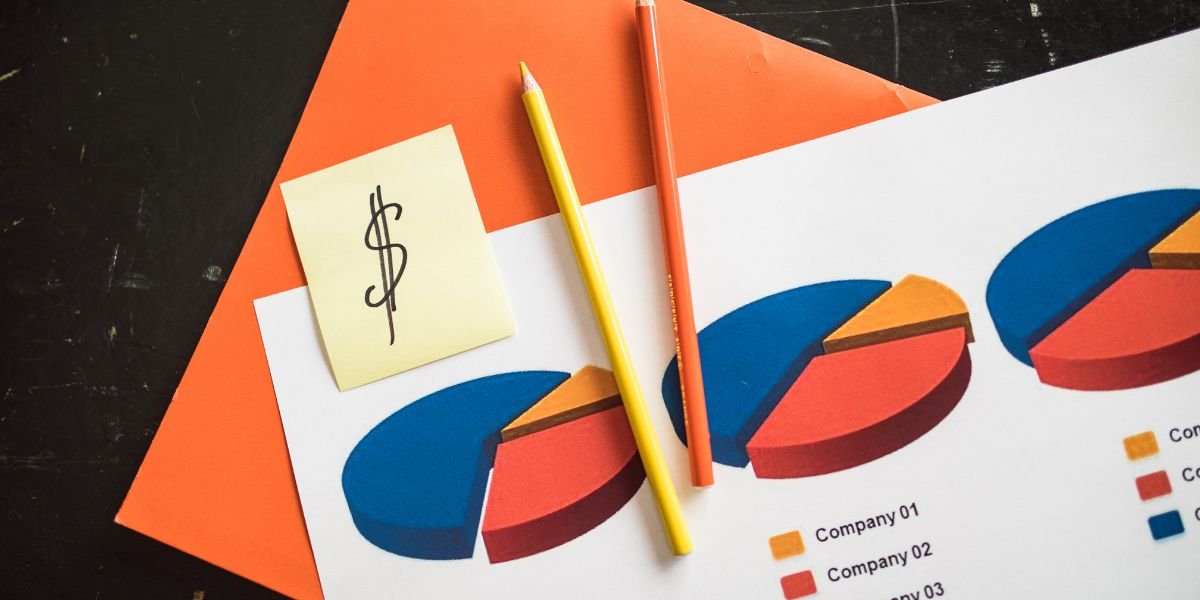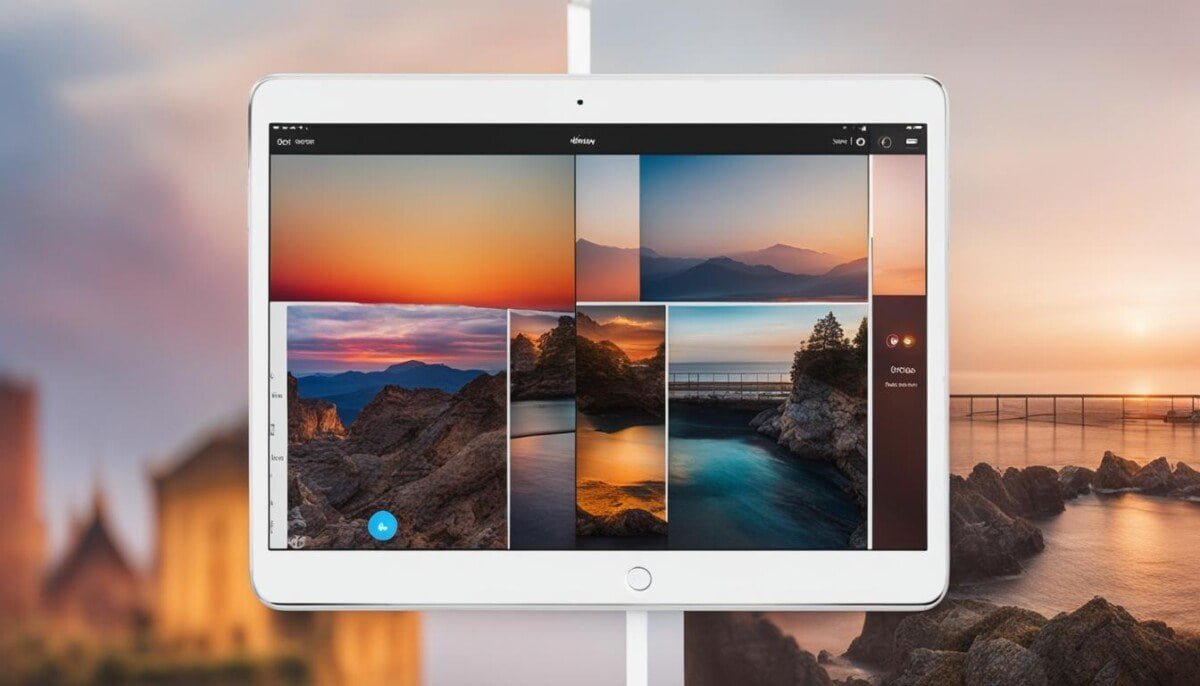Data is the new oil, and visualization is the refinery that helps us derive insights from it.
Data visualization and reporting have become an integral part of businesses today.
It helps organizations make data-driven decisions by presenting complex data in a simplified way. In this blog, we will explore what data visualization and reporting are, their business value, types of data visualization methods, and effective examples of data visualizations.
We will also discuss the best tools available for data visualization, certifications worth investing in, top jobs and salaries in the field, advantages of real-time dashboard analytics, and utilizing Tableau for data visualization.
Communication is key when it comes to data visualization; we will share essential elements of great dashboard design, how to create impactful infographics, understand server insights and security measures, overcome common challenges, apply it to business intelligence, increase efficiency with automated reporting, top trends for 2023 and best practices for communicating insights effectively.
What is Data Visualization and Reporting?
Data Visualization and Reporting is the practice of using visual aids like graphs and charts to present complex data in an easily understandable format.
It helps identify trends, patterns, and relationships in data. To be effective, one needs to choose the right visual aids and formatting for clarity.

Understanding the Business Value
Effective decision-making requires clear communication of insights. Data Visualization and Reporting play a crucial role in identifying trends, patterns, and relationships in data. It presents complex information in a simple and intuitive way, enabling stakeholders to make informed decisions quickly.
Visualization tools create engaging presentations that are easily understood by a diverse audience. Predictive analysis using visualization technology is critical in business planning and forecasting. Effective Data Visualization and Reporting provide an advantage for any organization looking to stay competitive amidst the ever-growing volumes of data available today.
Types of Data Visualization Methods
To present data in an understandable manner, various types of data visualization methods are utilized. Changes over time can be represented through bar charts and line graphs. Pie charts and donut charts work best when displaying parts of a whole.
Scatter plots help identify correlations between variables while heatmaps display large amounts of data compactly. Infographics are the most effective visual representation for communicating complex data.

Effective Examples of Data Visualizations
Presenting information through effective data visualization is critical in communicating insights. Utilizing charts and graphs can help present information more clearly and concisely.
Incorporating interactive elements such as hover-over effects or clickable sections can increase engagement. Highlighting important information with visually appealing color schemes is essential, as well as using creative visual representations like infographics to communicate complex data.
It’s crucial to ensure that the data visualization is easy for stakeholders to understand by providing relevant context and avoiding outliers.
Best Data Visualization Tools Available
If you’re looking for a good choice when it comes to data visualization tool selection, there are plenty of options worth considering.
Tableau is an excellent choice for interactive data visualization and reporting, while Microsoft Power BI offers advanced analytics and visualization capabilities. Google Data Studio is a free and user-friendly option for creating custom reports and dashboards, while Domo is an enterprise-level platform that integrates with multiple data sources for real-time visualizations. Infogram specializes in creating engaging infographics and charts with customized branding options.
With so many choices available to choose from, it’s important to carefully consider your specific needs when selecting the right tool for your business intelligence needs.
Data Visualization Certifications Worth Investing in
Investing in data visualization certifications can be a good choice for data analysts and other professionals looking to improve their skills in analytics and data visualization. Some popular options include Tableau certification, Google Data Studio certification, and Microsoft Power BI certification.
These certifications provide hands-on experience with a variety of data visualization tools and techniques such as scatter plots, heat maps, pie charts, bar graphs, line charts, area charts, histograms and gantt charts. Additionally, D3.js certification focuses on creating complex and interactive visualizations using javascript library while Udemy courses offer training on specific tools or types of visualizations.
By investing time in gaining these certifications or acquiring new skills through online courses one can become a better communicator of insights through visual representations of data.
Top Jobs and Salaries in Data Visualization
Professionals skilled in visualization tools like Tableau or Power BI can find exciting career opportunities in various industries as data visualization specialists or business intelligence analysts. Other job roles follow suit with the skillful use of other tools such as Google Data Studio.
Apart from technical expertise, good communication skills and an eye for detail are essential to create visually appealing graphics and charts to help stakeholders make informed decisions.
The average salary for these jobs varies based on experience level and company size.
Advantages of Real-Time Dashboard Analytics
Real-time dashboard analytics provide an excellent means of obtaining pertinent metrics and data sources that enable decision-makers to act fast. Collaborating with teams is more effective when using shared platforms for data analysis. Early identification of issues is possible through the use of real-time dashboards; thus promoting proactive measures.
Utilizing Tableau for Data Visualization
Tableau is an incredibly powerful visualization tool that offers numerous ways to present data. From pie charts to scatter plots, it provides various options for representing complex information in a simple and easy-to-understand format.
What’s more, Tableau allows you to connect with multiple data sources for comprehensive reporting. Its intuitive interface also enables the creation of interactive dashboards and reports that are both visually appealing and informative.
Additionally, Tableau provides robust analytics features that help extract insights from large datasets.
This way, businesses can use the power of analytics to drive data-driven decision-making processes. By allowing stakeholders to interpret metrics easily, Tableau helps improve collaboration between teams.
Why Communication is Key for Data Visualization
Clear and concise communication is a vital aspect of Data Visualization and Reporting. By using well-designed visual representations of data, decision-makers can engage stakeholders in the presentation of information effectively.

The insights shared through data analytics and visualization tools enable stakeholders to interpret the data efficiently. This helps ensure that decisions are made based on accurate information that has been communicated appropriately.
How to Create Impactful Infographics
When it comes to creating impactful infographics for Data Visualization and Reporting, there are a few things to keep in mind. Rephrase the content provided in order to make it more unique and ensure a smooth flow from previous topics. Incorporating charts and graphs with visual elements like color and icons can make your infographic engaging while testing it with a sample audience can guarantee effective communication. Remember these tips for effectively communicating insights through visual representation.
Essential Elements of a Great Dashboard Design
To create a great dashboard design that communicates insights effectively, it is essential to follow these guidelines. First and foremost, prioritize visual appeal and ease of readability for your audience.
Avoid cluttering the screen with irrelevant information by focusing on the most important data points. In addition to this, using color and typography can highlight essential insights while interactive elements such as filters or drill-down menus allow viewers to explore data in greater depth. By following these tips for effective dashboard design you will present your data in a visually engaging way that facilitates understanding.
Server Insights and Security Measures
Visualizing server insights can help identify trends and patterns that might be difficult to spot otherwise. Charts, graphs and dashboards enable effective communication of valuable information on user behavior, application performance and security measures.
Additionally, access controls and encryption measures ensure the secure management of sensitive data.
By incorporating visual representations of data along with effective communication strategies Data Visualization and Reporting can communicate insights effectively.
Understanding the Science Behind Data Visualization
Understanding the Science Behind Data Visualization involves comprehending its purpose. By converting complex data into visual representations using graphs, charts, and dashboards through Data Visualization techniques like color coding or interactive elements such as filters and drill-down menus, businesses can gain valuable insights.
Accurate interpretation of data aids in effective decision-making by creating visually appealing and understandable graphical summaries of Big Data sets for stakeholders.
Overcoming Common Data Visualization Challenges
Ensure that you select an effective visualization tool while keeping in mind secondary keyterms such as visualization type, analytics, graphing tools or dashboard software.
Opt for appropriate chart types including pie charts and scatter plots that align with metrics and datasets. Use color coding to highlight data source outliers on real-time visuals like heat maps or histograms.
Simplify the message by creating a clear narrative through infographics or interactive charts that resonate with stakeholders.
Top Trends in Data Visualization for 2023
In 2023, data visualization will witness increased use of interactive and animated visuals.
There will also be a focus on accessibility and inclusivity so that people with disabilities can easily interpret the graphs and charts.
Additionally, there will be wider adoption of augmented reality (AR) and virtual reality (VR) for data presentations. Machine learning (ML) and artificial intelligence (AI) will be integrated into visualization tools to create more personalized visualizations.
With storytelling increasingly important in data visualization, creating engaging narratives that are easy to understand is critical. Overall, the primary goal should be creating visual representations of complex data sets in an informative yet attractive manner.
Applying Data Visualization to Business Intelligence
Visualizing data is crucial for identifying patterns and trends in complex data sets used in business intelligence.
Communicating insights effectively to stakeholders is important for making informed decisions. Tools such as Microsoft Power BI and Tableau allow for a visual representation of large data sets using various types of visualizations, including scatter plots, bar graphs, pie charts, heat maps, and line charts.
Effective use of storytelling techniques with visual aids ensures accurate interpretations by decision-makers.
Increasing Efficiency with Automated Reporting
Efficiency can be increased in data visualization and reporting with the use of automated reporting tools. Visualizing information allows for quicker analysis and communication of insights. By generating reports automatically in various formats such as PDF or Excel, sharing with stakeholders becomes much simpler. Additionally, these tools allow for the customization of reports based on specific metrics or KPIs.
Best Practices for Communicating Insights Effectively
To effectively present insights through visualization, it is essential to use clear and concise language and appropriate visual formats without overwhelming the audience with too much information.
Always consider the audience’s technical knowledge and tailor your presentation accordingly. Effective data visualization can be achieved using graphs, pie charts, scatter plots, bar charts, histograms and heat maps among other types of visualizations. Tools like Tableau, Power BI, Qlik Sense and Looker are excellent choices for creating visual representations of data.
Choosing the Right Tool

To effectively present insights through data visualization and reporting, it is crucial to choose the right tool. The first step is to identify the purpose and audience of your visualizations to determine which types of graphs or charts are appropriate.
For instance, scatter plots are commonly used for analyzing correlations between two variables, while pie charts are effective for showing parts of a whole. Look for tools like Microsoft Power BI or Tableau that allow you to create clear and concise visualizations with features like real-time updates and integration with other tools.
Finally, consider the cost and ease of use when evaluating different data visualization software options.
Frequently Asked Questions
What are some effective methods for visualizing complex data sets?
To make complex data sets more understandable, use clear graphs and charts. Differentiate between categories or variables with color coding. Interactive elements like hover-over tooltips can provide more information. Try using creative visual aids like infographics to keep viewers engaged.
What are some common mistakes to avoid when creating data visualizations?
To create effective data visualizations, avoid overwhelming viewers with too many colors or unreadable charts while also ensuring that your data isn’t oversimplified. Accuracy is key, but don’t forget to make sure your visuals support your narrative and communicate insights clearly.
How can data visualization enhance the communication of insights and findings?
Data visualization simplifies complex data, emphasizing patterns and relationships that are difficult to discern in raw data. It also highlights outliers and anomalies. The use of color, design, and labeling can enhance the impact of visualizations.
Top Data Analysis Tools for 2023
Choosing the Right Data Analysis Tool
Conclusion
Data visualization and reporting help you turn raw data into actionable insights. It allows you to communicate complex information in an easy-to-understand manner. By doing this, it enables businesses to make informed decisions that drive growth and success. With the right tools and techniques, you can create impactful infographics, real-time dashboards, and automated reports that provide valuable insights. However, communication is key when it comes to data visualization. You need to ensure that your audience understands the data presented and the implications of those findings. To learn more about best practices for communicating insights effectively, check out our comprehensive guide on data visualization and reporting.




